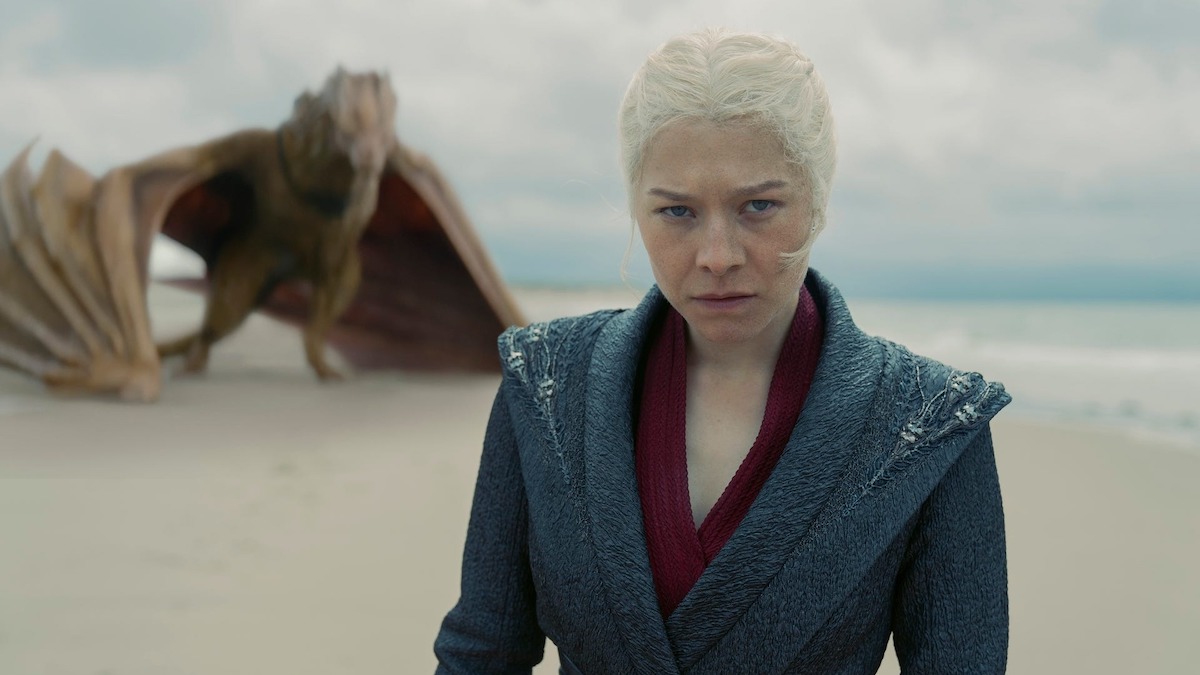Someone Pointed out That ‘House of the Dragon’ Is Too Moral to Be Medieval, and Frankly, I Agree
The anti-war sentiment is uncharacteristic!

Almost 9/10 times when someone calls a movie or a show “too woke,” I do a hard ignore, lest there be an unsavory exchange of words. But when the show in question is a medieval fantasy like House of the Dragon, you can’t help but give a second thought to its morality.
When Game of Thrones first landed on our TV screens, we were all rightly shocked because we’d never seen something so ruthless, brutal, and, erm … incestuous. When Ned Stark lost his head and when the seemingly good guys committed war crimes without blinking an eye, it was accepted because that’s how savage, survival-driven, and problematic the medieval times were. Patriarchy reigned supreme. Men were beasts, and women weren’t all that great, either. Every character was fifty shades of grey.

There were enough complaints of violence-porn on screen against the series that when House of the Dragon arrived and chose to refrain from it, there was a collective sigh of relief. The female gaze in the sex scenes was welcome, and so were the anti-war statements that the show was subtly making by having its female characters like Alicent, Rhaenyra, and Rhaenys refrain from rash violence while doing everything they could to keep the peace.
And yet, one user on Reddit pointed out that House of The Dragon wasn’t letting its characters be medieval enough. And their observations weren’t all that off.
Leaked spoilers ahead for House of the Dragon season 2 finale in the Reddit post!
The author of the post lists six reasons for claiming what they do, all of which point out how multiple characters like Aegon, Aemond, or Rhaenyra are shamed for doing something that would actually be quite acceptable for medieval society, especially during a time of war. Two points, in particular, stood out to me—the aversion to war and the smallfolk thinking they deserve the same comforts as the God-like Kings and Queens that rule over them.

By making Rhaenyra and Alicent the initial moral markers of the story, House of the Dragon is trying to show a gradual decline and breaking of those morals for maximum emotional impact. Both of these characters are mothers with the instinct for protection and peace and are risk and conflict-averse. But of course, when sh*t hits the fan, their anger overruns any moral responsibility they feel towards their people, and the war still happens.
However, as the post’s author points out, people of those times, especially in such positions of power, would never think twice about the collateral damage in war or waging a war itself. Just look back at Game of Thrones and you’ll see how even someone as maternal as Catelyn Stark didn’t think twice before amassing an army and letting her firstborn lead it to avenge her husband’s execution. War was an inevitability in those times, and being a woman didn’t mean you were a pacifist who would judge others for causing so much bloodshed.

This point is a strong argument against the entire Harrenhal arc for Daemon Targaryen, who, through his visions, is being therapized into feeling remorse for something as basic as wanting to rule. It’s natural for members of royal families to harbor that ambition and be jealous when someone else gets it, especially when that person is your weaker sibling or your wife because feminism didn’t exist and women in those times were not considered fit to rule!
The other point about the socio-economic disparity that the smallfolk took offense at might be a stretch because, of course, a king can’t (or rather, shouldn’t) be feasting when his subjects are dying from a lack of resources. Once again, though, the argument persists that in those times, it was completely normal for the royal family to continue living a life of luxury during a war instead of opening their kitchens and treasuries to the poor.
So yes, House of the Dragon is uncharacteristically sanitized and moral for a medieval-inspired fantasy. Perhaps this is to make the immoral choices stand out in stark contrast, which would then make the downfall of a once god-adjacent House Targaryen seem even more tragic.
What do you think?
Have a tip we should know? [email protected]